nn
n
n
n
n It was snowing like billy-o here in Lancashire thisnmorning and it’s snowing again at the moment, and so we are all being advisednby the weather-Johnnies who are up to speed about this sort of thing that it’snprobably not the best idea to bother going out unless it’s really necessary,nwhich is all well and good by me as I’ve spotted a couple of bottles of BrownnAle lurking in my kitchen that I’m sure won’t be around anymore come bedtime.
n
n
n
 |
| Sir Francis Bacon |
n
n
n
nAll this snow put me in mind of Sir Francis Bacon – well, that and the stuffnabout J J Winckelmann I wrote earlier this week; I’ll come to the Bacon/snownthing a little later but to start with Winckelmann. Just as he is considered tonbe the first art historian and archaeologist so Bacon can be considered to benthe first modern scientist. Bacon was a polymath, he simply did so muchnstuff it’s staggering to think it was the work of just one man. He was anprecocious boy, but a sickly one who was educated at home prior to going up tonCambridge University at the age of twelve (not at all an unusual thing in thenpast, when a different system of education was the norm), and he also attendednthe University of Poitiers.
n
n
n
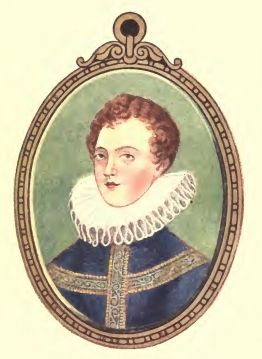 |
| Francis Bacon aged about eighteen |
n
n
n
nHe trained for the law but family connections meantnthat he also gained some early experience of diplomacy although when his fatherndied unexpectedly in 1579, the eighteen-year-old Bacon began training as anbarrister in order to support himself. With the help of the patronage of hisnuncle, Lord Burghley, he rose rapidly at the Bar and two years later he wasnalso elected as a Member of Parliament. His rise at the court of Elizabeth wasnslower, if not positively glacial, but when James I became King all thisnchanged. Bacon himself acknowledged this in a later letter to the King, wherenhe wrote that James “ … had raised and advanced him nine times; thrice inndignity, and six times in office.”
n
n
n
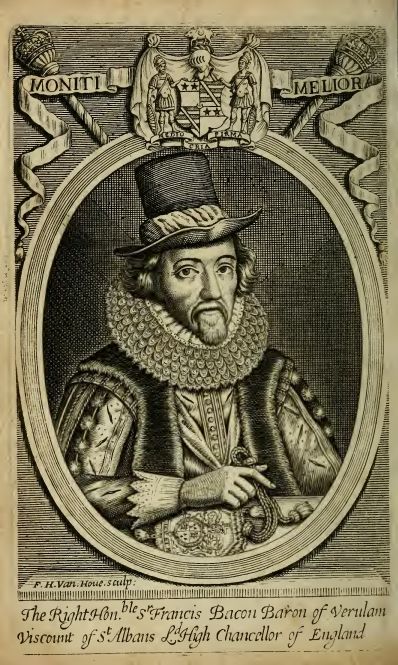 |
| Sir Francis Bacon, Baron Verulam and Viscount St Albans |
n
n
n
nHe was knighted in 1603, became AttorneynGeneral in 1613 and Lord Chancellor in 1618, in which year he also became BaronnVerulam of Verulam, being further raised to Viscount St Alban in 1621. Andnthen, ruin! In that same year, Parliament charged him with twenty-threenseparate counts of corruption, for which he was fined £40,000 and sentenced tonbe held in the Tower of London awaiting the King’s pleasure (i.e. potentiallynindefinitely). In reality, he was only imprisoned for a few days, the Kingnremitted the fine and Bacon narrowly escaped degradation (the removal of hisntitles), but he was barred from holding further offices of state or sitting innparliament. Instead, he withdrew from public life and devoted the rest of hisnlife to study and writing.
n
n
n
 |
| Sir Francis Bacon |
n
n
n
nThis was the silver lining of the dark cloud thatnhad descended over Bacon’s public life, as he spent the next five years of hisnlife experimenting, writing and thinking, unencumbered by the distractions ofncourt life, and up to this point what writing he had produced was done, inneffect, in his spare time. With unlimited time on his hands, he was free tonexplore wherever his fancy took him, which was in some quite remarkablendirections. As early at his time at Cambridge, Bacon had been opposed tonAristotelian methods of philosophy, which he regarded as ‘fruitless’, andnalthough most thinking undergraduates will find fault with their textbooks,nBacon carried this dissatisfaction through to his adult life.
n
n
n
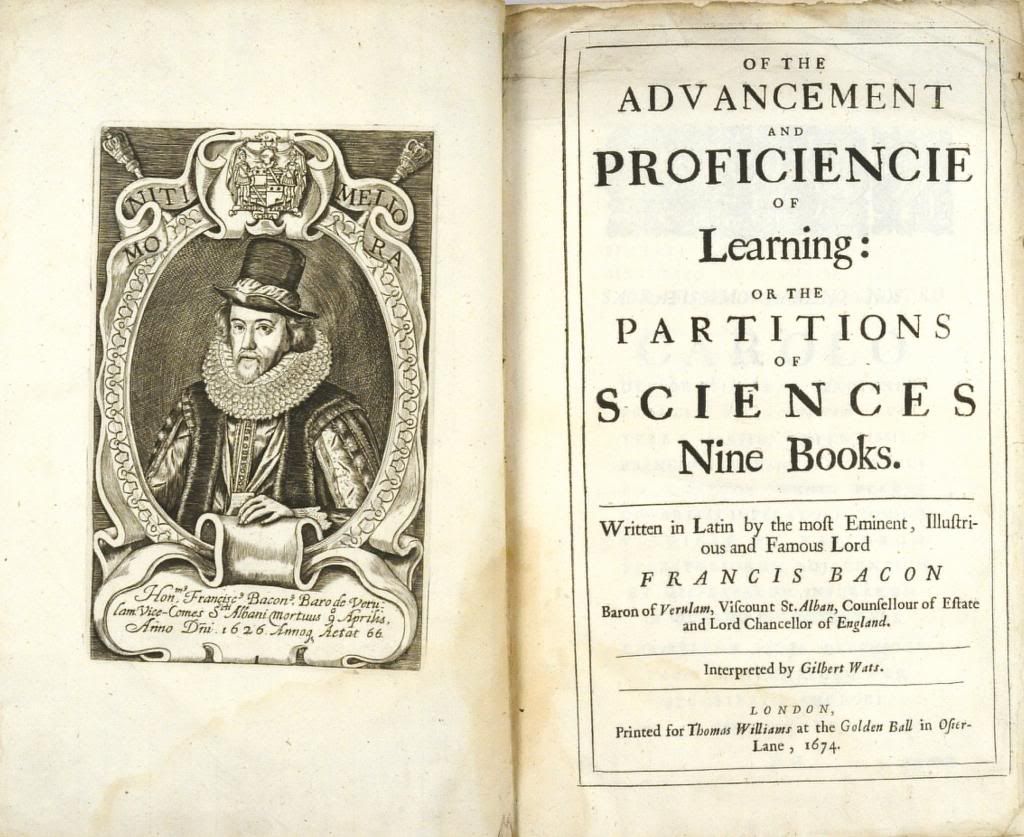 |
| Sir Francis Bacon – Advancement of Learning – 1605 (1674 ed) |
n
n
n
nIn his Advancementnof Learning (the full title is Of the Proficience and Advancement ofnLearning, Divine and Human) of 1605, Bacon identified three ‘distempers’nthat were barriers to true learning. He calls them Fantastical Learning, ContentiousnLearning and Delicate Learning (or, vain imaginations, vain altercations, andnvain affectation).
n
n
n
nThe first, Fantastical Learning, is what today we might callnpseudoscience, it is the nonsense peddled by charlatans and deceivers, whonpretend to knowledge but theirs is knowledge without substance, oftennself-referential, and carefully shielded from external criticism. It is, asnBacon says, ‘the foulest’ as it seeks to destroy true knowledge.
n
n
n
nThensecond, Contentious Learning, is the scholasticism of the school of Aristotle,nto which Bacon had been exposed as a student. It values traditionalism andndebate for its own sake, it prefers quibbling and hair-splitting over thenacquisition of true knowledge, it goes round in stagnant circles and so makesnno forward progress.
n
n
n
nThirdly, Delicate Learning, which Bacon saw as thenmistaken reverence for the works of the Ancients for their own sake. Texts thatnhad long ‘slept in libraries’ were being read again but instead of usingnthe knowledge contained in those books, they were used as models for literarynpretensions, to revive Ciceronian rhetorical embellishments and the prosenstyles of the Ancients. It is the triumph of style over content, not what younsay but how you say it. For Bacon, knowledge was to be used for the benefit ofnmankind, to make progress, to learn and to discover new things.
n
n
n
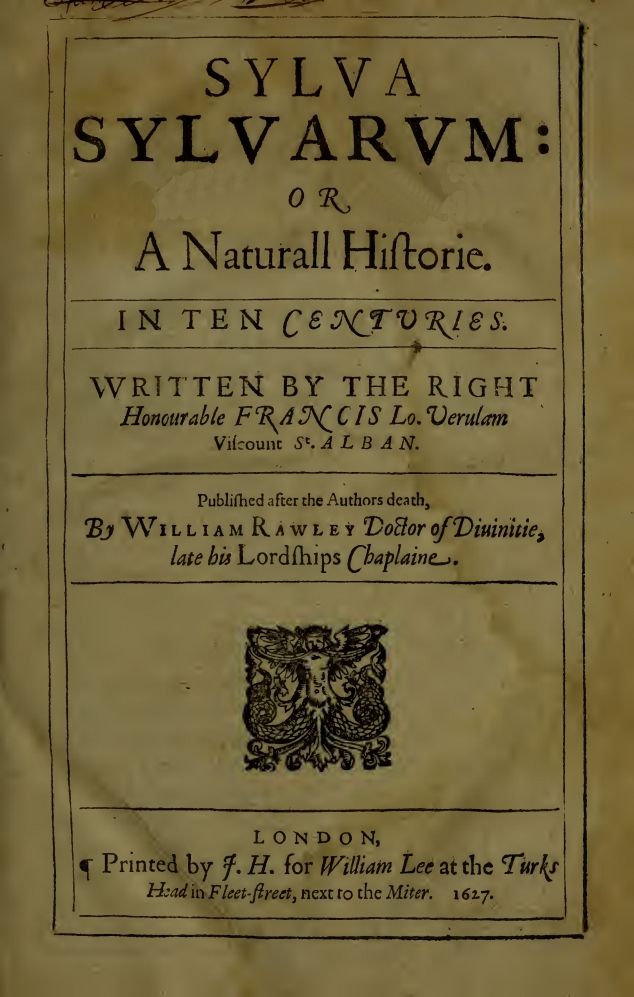 |
| Sir Francis Bacon – Sylva Sylvarum – 1627 |
n
n
n
nIn his DenHæresibus (1597), Bacon wrote ‘Ipsa scientia potestas est’ –nKnowledge is Power – and it was the acquisition of Knowledge that drove Baconnto develop his scientific methods, which valued empirical knowledge, knowledgengained from experiments and observations, knowledge gained from inductivenreasoning. In this, Francis Bacon is the father of the modern scientificnmethod, he was the first to say, in effect, don’t believe what you’re beingntold is the truth just because it is written in a book, get out there and looknat it yourself, ask questions and do experiments and learn about it fornyourself.
n
n
n
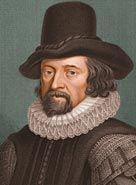 |
| Sir Francis Bacon |
n
n
n
nSo, what was that thing about Bacon and snow at the beginning? Well,nthe story goes that Bacon was out in his coach on one snowy day and it occurrednto him that the coldness of the snow might possibly be used as a preservativento keep meat fresh. He stopped the coach and bought a chicken from a woman atnher stall at the bottom of Highgate Hill, then went out into the snow andnstuffed some of it into the body cavity of the fowl. He was so engrossed in hisnexperiment that he neglected to keep himself warm and was eventually overcomenby the cold. Unable to go on, he struggled to the nearby house of the Earl ofnArundell, where he was put into a damp, unaired bed. His cold developed intonpneumonia and he died from ‘suffocation’ two days later, on April 9thn1626, aged 65.
nnn
n
n
n
n
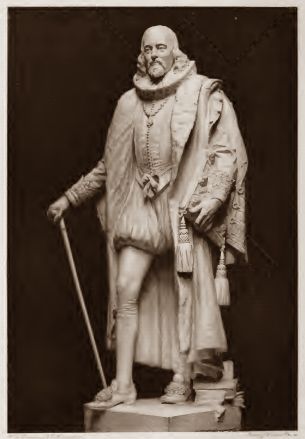 |
| Statue of Sir Francis Bacon |
n
n
nnn
nBut the story of Sir Francis Bacon doesn’t stopnthere. Dearie me, no.
nnn
n
nnn
